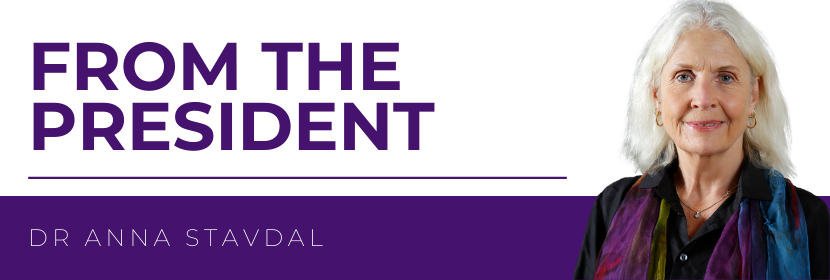From the President: On Family Doctors’ Vaccine Dilemmas
 Español Français 中文
Español Français 中文
Pandemic vaccines became available a full year ago, yet we still lack adequate coverage. Unfair global distribution is indisputably the major cause; without hesitation, many of us are speaking out for this to change. Complicating matters, however, is a growing trend in some areas toward vaccine hesitancy, even rejection. Both have been linked to increased divisiveness and finger-pointing, sharpening the fronts between those who comply with ‘rational’ medical advice and those who do not. How are we to relate to that phenomenon in a professional way? How do we understand it?
Health care is a human right. So is the right to make one’s own health care choices. At this stage of the pandemic, a common understanding exists globally among health professionals: vaccination is the most powerful tool we have to control the spread of the virus, its negative consequences for individuals, and its impact on public health and societies as a whole.
Family doctors are advocates for increased health literacy. As first responders, we meet people where they live, in context, sharing our medical knowledge and historical perspectives to help our patients make good decisions about health. The knowledge we continue to amass via the scientific standards of Evidence-Based Medicine equips us to offer our patients ‘rational’ advice in the strict, biomedical sense. In that process, each family doctor functions as an interpreter, ‘translating’ validated evidence into clear, convincing messages:
“The best single action you can take to improve your health is to stop smoking.” “Avoid giving your toddlers soft drinks every day, and you’ll help prevent caries and obesity and reduce their risk for developing diabetes later in life.”
However, no matter how deeply we physicians trust the EBM ideals, if we want the advice that we consider ‘rational’ to be useful, each patient must experience it as meaningful. This requires us to prepare ourselves to be interpreters at another level: If we are to adapt how we communicate our advice such that it actually impacts our patients’ decision-making process, we need first to have sought insight into their cultures, beliefs, emotions, and values – their context. Consequently, our relationships with our patients and the levels of trust we establish are essential to our ‘translating’ the potential of our discipline into action.
Although the reasons given for vaccine hesitancy vary, I imagine it stems from an increasing lack of trust that, in turn, intensifies a growing sense that one’s autonomy is under threat. Until only a few years ago, medical decision-making could be caricatured as involving a doctor, whose job was to acquire and dispense knowledge, and a patient, whose job was to receive and follow the doctor’s orders. Much has changed. In particular, the arrival of the Internet has given patients access to more medical information – even if not always reliable. Now, cyberspace is often present in the consulting room, as if a virtual third person had joined in. In this virtualized environment, knowledge and evidence crash into culture and beliefs at breakneck speeds. What we value as medical knowledge may suddenly be highjacked, exploited for political power games, or refashioned into identity markers.
We all have experience with individual patients not following our advice, and we can often explain why they haven’t. But when the potential consequences of non-compliance include harming the collective, ‘us’, also us doctors, and when those consequences might increase the risk of death, not just of that particular patient but of untold others, also children and the elderly – many of us reach a level of frustration that is hard to manage.
Our spontaneous responses may leave us feeling caught without a good way to respond. Might a dogmatic trust in medical knowledge lead us toward abuses of power, toward the paternalistic demand, "Do what I tell you to because I know what's best for you"? Or, at the other extreme, might our felt commitment to respecting and protecting our patients' liberty and freedom of choice lead us toward a negligent shrug, "You insist you know what's best for you, so do whatever you want?" When we have kept our mouths shut even as crucial information is being drowned out or have not spoken out about the seemingly callous irresponsibility of anti-vaxxers, might we accuse ourselves – fairly or not – of moral cowardice? Might our silence reflect our fears, perhaps of confrontation, of losing others' positive regard, of noticing that we too may harbour tyrannical impulses?
We have to find ways to live with these dilemmas. We could ask ourselves and each other such important, professional questions as: How can we continue to deliver medical care in accordance with our professional core values, as well as our renowned, “Primum non nocere”? How can we maintain our empathy toward people who don’t accept our advice, even as we perceive the consequences of their not doing so to be potentially lethal?
The first step is to put such questions on the agenda for reflection, discussion, and debate, with members of the public, yes, but even before that, with our Primary Care colleagues.
Dr Anna Stavdal,
WONCA President